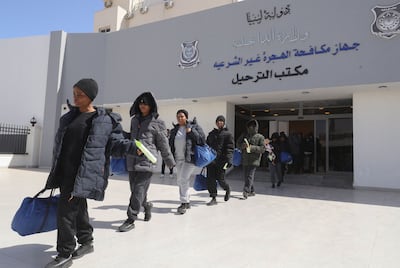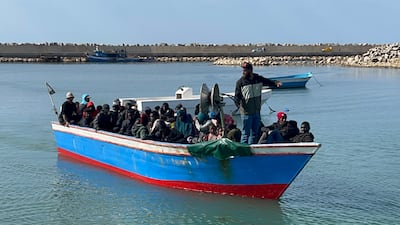Libya's suspension of 10 international aid groups accused of trying to alter the country's ethnic make-up has caused deep concern in the humanitarian community, with experts saying it is part of a wider effort to shift focus from internal issues while pressing Europe for political and economic concessions.
The Tripoli-based government announced last week it was revoking the permits of the Norwegian Refugee Council, Doctors Without Borders (MSF), the UNHCR and seven other organisations, accusing them of plotting to change the country's demographics by enabling the long-term settlement of African migrants.
War-torn Libya remains a major transit centre for migrants who risk Mediterranean crossings in hopes of reaching Europe. The move against aid groups comes amid an increased anti-migrant stance across North Africa and the tightening EU-backed migration controls.
The UN has expressed alarm over the deteriorating situation for migrants in Libya, where rights groups continue to document widespread abuse in detention centres.

MSF confirmed to The National that Libyan authorities had halted its operations on March 27 after the Internal Security Agency closed its centres and interrogated staff.
“Since mid-March, the ISA has been summoning and interrogating the staff of international non-governmental organisations that provide care to migrants and refugees in Libya, as well as members of private medical clinics collaborating on these activities," said Tim Shenk, the organisation’s spokesman. "Referrals to these health facilities have been stopped following orders by the ISA to end admissions of refugees and migrant patients."
He said MSF was "very concerned" about the consequences the orders will have on the health of patients and on the safety of humanitarian workers.
“MSF has always worked in collaboration with the Libyan health authorities. We have continuously been authorised to work in the country and duly registered by competent authorities," Mr Shenk said. "The only purpose of our actions in Libya is to provide medical care to people in need."
More than a decade after the Nato-backed uprising that ousted Muammar Qaddafi, Libya continues to struggle with deep political divides and instability. The country is split between the Government of National Accord in Tripoli and a rival eastern administration backed by military commander Field Marshal Khalifa Haftar. Efforts to bridge the divisions between these factions have not achieved lasting stability.
But the Libyan government said the aid group suspensions were justified.

“This plan to settle migrants of African origin in our country represents a hostile act. It aims to change the demographic composition of the country and threatens the balance of Libyan society,” said Salem Gheit, a spokesman for Libya’s Internal Security Authority.
The agency said the organisations were also suspected of laundering money because they avoided transparency in how financial transfers are made for their projects and how they exchange foreign for local currency.
“Since 2021, Abdul Hamid Dbeibeh’s Tripoli government has shown populist, demagogic and authoritarian tendencies,” Libya expert Jalel Harchaoui told The National. “Though not entirely new, these have grown amid tougher challenges: a faltering cohabitation with the Haftar family in the east; and galloping fiscal deficits that limit access to public funds.”
Mr Harchaoui said that in response to Field Marshal Haftar's consolidation of power, Mr Dbeibeh is trying to assert himself, pushing for harsher territorial control and demonising sub-Saharan migrants, while accusing mostly western NGOs of interference.
As he aims to appear ”large and in charge” by attacking NGOs and stoking anti-migrant sentiment, he seeks to project the “illusion” of a government committed to reducing migration in the North African country and pressuring European donors for more financial support.
Italy last week pledged €20 million ($21.8 million) to the International Organisation for Migration to fund “voluntary repatriations” for 3,300 sub-Saharan African migrants stranded in Algeria, Tunisia and Libya.


